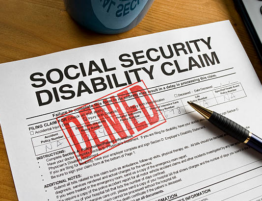
As a Social Security Disability law firm, the Patrick J. Kelly Law Office is committed to advocating for the rights of disabled individuals. A critical piece of legislation that plays a significant role in safeguarding the legal rights of persons with disabilities in California is the California Disabled Persons Act (CDPA).
It’s covered under Cal. CIV Division 1: PERSONS, PART 2.5, civil code sections 54-55.33.
Continue reading to learn more about the CDPA and why it’s so essential to Californians with disabling conditions.
Understanding the Disabled Persons Act in California
The California Disabled Persons Act was established in 1968. It serves as a powerful law aimed at protecting the rights of disabled individuals against discrimination and ensuring accessibility to public places, services, and accommodations.
The CDPA prohibits discrimination on the basis of disability in various areas of public life. This includes such areas as employment, housing, and public facilities. It is an integral part of disability law in the state.
Employment Protection Under the CDPA
One critical concern that often arises among disabled individuals is the fear of losing their jobs because of their disability. The CDPA provides essential safeguards against such discrimination.
According to California law, employers can’t discriminate against or terminate employees simply because they have a disability. This means that if you are on disability or have a disability which qualifies under the Americans with Disabilities Act (ADA) federal law, you can’t be terminated solely because of your medical condition.
The CDPA also emphasizes the importance of accommodations for disabled employees. This means that employers are required to provide reasonable accommodations that enable disabled individuals to perform their job duties effectively. Accommodations can vary depending on the individual’s disability and the nature of the job.
The exception to this rule is if providing accommodations would place a substantial burden or expense on the employer.
Accessibility to Public Places and Services
The CDPA also focuses on ensuring accessibility for disabled individuals to public places and services. Under this act, all public places including businesses, government buildings, and medical facilities including hospitals, clinics, and physicians’ offices must be accessible to those with disabilities. This means providing accessible entryways, restrooms, parking spaces, and other necessary public accommodations to ensure equal access for everyone.
Similarly, public transportation, such as buses and trains, are required to offer accessible options for disabled individuals. This includes ramps, elevators, and designated seating areas to accommodate people with disabilities.
Safeguarding Your Rights With an Experienced Social Security Disability Attorney
When it comes to navigating the complexities of Social Security Disability claims and ensuring your rights are upheld, an experienced attorney can be a valuable ally. At the Patrick J. Kelly Law Office, we understand the importance of legal protection for every person, regardless of their age or health status.
As a dedicated Social Security Disability attorney, you can rely on us to help you obtain necessary financial support when you’re unable to work. Attorney Patrick Kelly uses his knowledge of Social Security and disability law in California to advocate for clients. You can trust him to stand by your side and fight for your rights no matter how complicated your situation may seem.
If you’re currently disabled and struggling to get by, you don’t have to face these challenges alone. Our experienced attorney is here to guide you through the intricacies of filing for Social Security Disability.
At our law firm, our legal team provides invaluable support every step of the way. Contact us at the Patrick J. Kelly Law Office today and take the first step towards securing the benefits you need.






